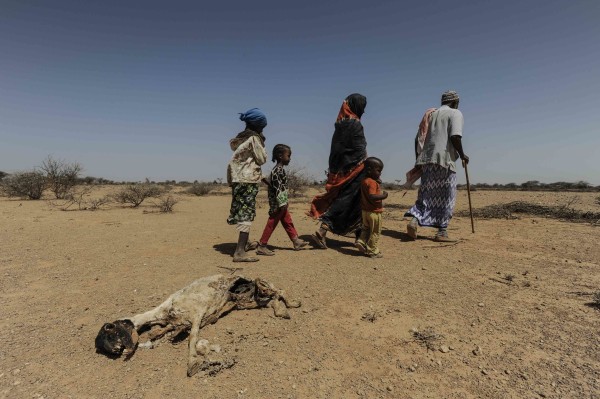EU funds $27.9 million to Somalia in support of droughts

The European Commission is mobilizing $55.9 million for emergency humanitarian funding to help people hit by drought in four countries in the Horn of Africa.
The biggest portion of humanitarian aid package goes to Somalia as $27.9 million will support drought-affected communities, Ethiopia receives $22.3 million, Kenya $3.3 million and Uganda $2.2 million to fight famine.
It is estimated that 13 million people need emergency food assistance due to drought caused by two consecutive poor rainy seasons. The $55.9 million will assist humanitarian agencies to scale up action in hardest-hit areas.
The emergency funding makes total European Union humanitarian aid to the region $410 million since 2018. This year’s rainy season in the Horn of Africa was among the top three driest on record. The ongoing drought comes just one year after the end of a major drought in 2016-2017. EU Commissioner for Humanitarian Aid and Crisis Management Mr Christos Stylianides said the European Commission is stepping up support for the people affected by the prolonged drought in the Horn of Africa.
“I have seen first-hand how much climate extremes are affecting this part of Africa. Our funding will help extend humanitarian assistance in the affected areas, helping communities ward off the risk of famine,” he said.
The latest aid package will go towards emergency food assistance the provision of basic health services, treatment of severe acute malnutrition in children under five years of age, pregnant and breastfeeding mothers.
The money will also protect households’ livelihood, improve water access for both human and livestock consumption. Over four million children are estimated to be acutely malnourished with about three million malnourished pregnant and breastfeeding women.
The prolonged drought has led to households neither to recover nor pastures and livestock herds to regenerate in across in Horn of Africa region. Most affected communities live in pastoral and agro-pastoral areas.
“Scarce rainfall means that families cannot sustain themselves with their agricultural and livestock activities. Food prices have already raised, further reducing poor households’ access to basic food supplies,” EU said in a statement.